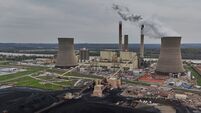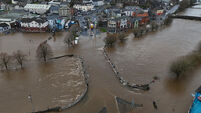Crude oil price trades close to $82 a barrel for new seven-year high

At an Opec+ meeting of producers earlier this week, Saudi Arabia and its partners opted for only a modest output increase of 400,000 barrels a day for November, taking many analysts by surprise as a spike in natural gas prices looks set to inflame demand for oil products this winter.
Oil climbed from a seven-year high as traders assessed the decision of oil producers to keep supplies fairly tight even as the world grapples with a natural gas crisis.
Brent for December gained $1.68 to $82.94 a barrel on the ICE Futures Europe exchange, while futures in New York advanced as much as 2%, heading closer to the key, psychological level.
CLIMATE & SUSTAINABILITY HUB














